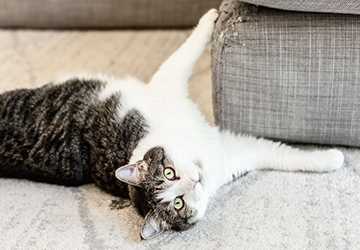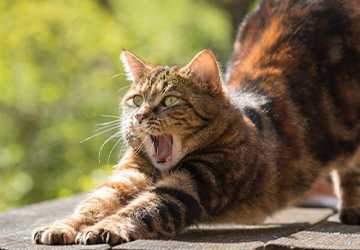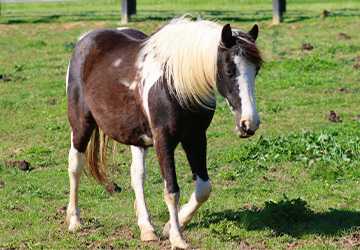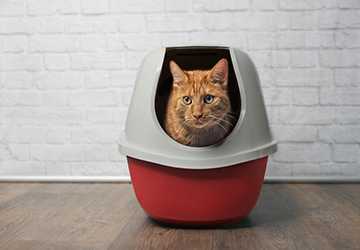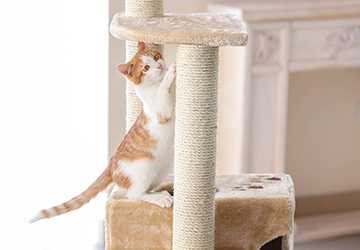6 Easy Tips to Help Your Cat Maintain a Healthy Weight
Are you worried about your cat's weight? Have you noticed your feline friend looking a little more fluffy than usual? If your cat weighs more or less than the average, you should be concerned about his health. Being a cat owner, you need to educate yourself about how weight management in cats, if left unchecked, can lead to health issues. An overweight cat could be harboring risks for diabetes, joint pain, and even heart problems. You love your cat, and the thought of them suffering in silence is enough to send shivers down your spine, right?
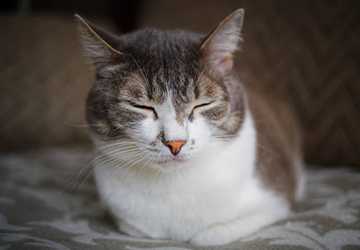
If this concern hits home, breathe a sigh of relief. You've found the right place for guidance. This blog post has six expert tips to help your cat maintain a healthy weight. Keep reading this blog post because these tips are the first step towards a new lease on life for your cat.
6 Tips to Help Your Cat Maintain a Healthy Weight
A sound body has a sound mind. Understanding how to keep your cat at a healthy weight is critical to ensuring a long, playful, and happy life. These tips will help your cat slim down, if necessary, and maintain a healthy weight long-term. Now, let's explore each tip individually, so keep reading!
Measure Meals
You control the food bowl and, with it, your cat's health. Overfeeding is a common mistake. Here's how proper meal measurement helps your cat maintain a healthy weight: You can control the quantity of food to your cat by; Prevents overeating: By measuring food, you avoid the free-feeding trap that can lead to obesity. Tailors to need: Cats have varying nutritional needs based on age, activity, and health. Start by checking the recommended serving sizes on your cat's food packaging. Consistency is critical, so use a standard measuring cup for accuracy. Beginning today, measure each meal to ensure your cat isn’t getting more than they need.
Scheduled Feeding Times
Consistency in feeding helps manage weight and instils a sense of security and routine for your pet. A set feeding schedule helps control weight and satisfies your cat’s love for routine. Here’s why it’s beneficial: Reduces snacking: Timed meals discourage all-day grazing. Enhances digestion: Regular intervals between meals aid digestion. Implement a twice-daily feeding schedule. Stick to it and watch your cat's health improve. Pick times for breakfast and dinner and make it a daily habit.
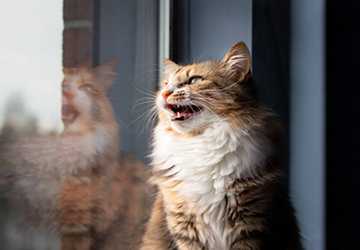
Smart Snacking
This strategy ensures treats stay a delight without derailing your cat's diet. Use treats sparingly and choose those with high protein and low calories to align with your cat's nutritional needs. Swap some treats for active play to enrich their mind and body simultaneously. Treats should be just that occasional, not a main course. To keep your cat's weight in check: Limit treats: They should be less than 10% of daily caloric intake. Choose wisely: opt for healthy, low-calorie options. Reward with play instead of food sometimes. Your cat will love the attention just as much! Reevaluate your treatment habits and adjust where necessary.
Encourage Exercise
Encouraging daily play sessions helps your cat stay agile and trim. Use interactive toys to mimic their natural hunting behaviors and allocate time for active play to keep those extra pounds at bay. Interactive toys: Engage your cat's hunting instincts. Daily playtime: Dedicate time each day to get your cat moving. Turn Exercise into a game, and your cat will be entertained while staying fit and introducing a new toy or playtime routine today.
Monitor Weight Regularly
With these tips, it is also essential that you should have a vital check on your cat's weight. Monitoring weight regularly will help you understand if your cat's weight is maintained or increasing so you can change your feed portion accordingly. Regular weigh-ins: Monitor changes and adjust food intake accordingly. Vet visits: They can provide weight management plans. Knowing your cat's weight helps you make informed decisions about their diet. Schedule a weigh-in session once a month.
Quality Food
Selecting high-protein, low-carbohydrate foods mirror the natural dietary needs of your cat, supporting a healthy weight and lean muscle mass. Quality food choices lead to better overall health and vitality. High protein: Supports lean muscle. Low carbs: Cats have little nutritional need for carbohydrates. Invest in premium cat food with good nutritional balance for your cat’s lifestyle. Review your cat's food label and consider an upgrade if needed.
Conclusion
Taking control of your cat's weight is not just about fewer treats or more play; it's about consistency. You're now equipped with the knowledge to make informed decisions for your cat's health from measured meals. Remember, change doesn’t happen overnight, and patience is essential. Celebrate the small victories, like choosing a healthier treat or sticking to the play schedule. You're ensuring that your cat maintains a healthy weight and providing them with the best opportunity for a long, joy-filled life by your side. Let’s make every purr count towards a happier, healthier tomorrow.
